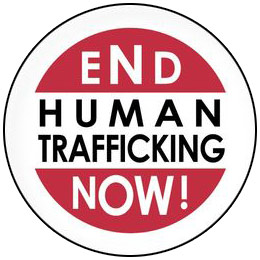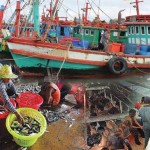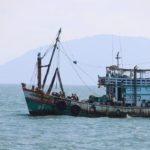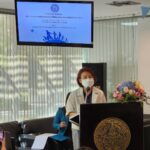
The appalling reports of forced labor and slavery on Thai fishing vessels moored at Ambon and Benjina islands in Indonesia, brought to light recently by the Associated Press (AP), underscore that human trafficking is a scourge that must be addressed seriously and urgently. The government of Thailand is committed to fighting this problem on every level, including bringing perpetrators of such crimes to justice to the fullest extent of the law. Also in this instance, the Thai Prime Minister has vowed to take action and prosecute those found to be involved.
Thai authorities were not unaware of the situation in Indonesia. The Department of Special Investigation (DSI) has been investigating reports of trafficking and forced labor around Ambon and Benjina islands since October last year. 70 fishermen stranded on Ambon have also been brought home, and Thai officials are now in Indonesia working to secure the release of more.
Thai law enforcement had already arrested three people on trafficking charges in relation to incidents in Indonesia, and has been gathering additional evidence to prosecute other perpetrators. Probes into suspects linked to human trafficking in the case of Silver Sea Line cargo ship, reported by AP, has also been ongoing. It may take time, but more arrests will be made.
At the same time, while Thai trawlers, captains and boat owners are involved, Ambon and Benjina Islands are beyond the jurisdiction of Thai law enforcement. This underscores the fact that human trafficking, modern day slavery and illegal, unregulated and unreported (IUU) fishing are transnational problems, often involving transnational crime syndicates aided and abetted by corrupt local officials.
One nation alone cannot solve these problems. Thailand – and the victims of human trafficking in the fishing industry – needs cooperation of all countries concerned. And the Thai government is ready to work with Indonesia, other maritime nations and other stakeholders to put an end to human trafficking and IUU fishing in the region.
The government of Thailand acknowledges that it needs to do more to end abuses in its fishing industry, and human trafficking in general. Since assuming office 10 months ago, the current government has taken more measures to fight human trafficking than any of its predecessors.
On a policy level, Prime Minister Prayut Chan-o-cha has made ending human trafficking a national priority. He has publicly announced “zero tolerance” for human trafficking and vowed to punish any officials who are either involved or not doing their part to eliminate these problems. He is pledging to prosecute and put out of business any boat owners or companies involved in forced labor.
Thai fishery officials are now requiring that trawlers install vessel-monitoring systems so they can be tracked and inspected. An estimated 7,740 vessels will have these systems installed by June. A Port-in/Port-out surveillance will also help monitor the labor welfare and develop a traceability system of catch throughout the supply chain.
Thai agencies are working with United Nations organizations and civil society groups to become better able to spot, identify and rescue trafficking victims during inspections of fishing vessels, factories and other locations.
The authorities have registered and granted permission to work to over 1.6 million migrant workers from neighboring countries who previously had been undocumented, vulnerable to abuse and some of whom had been victims of trafficking.
The Thai government has established government-run labor centers to supply registered migrant workers to the fishing industry and other industries, so that employers have no legitimate reason to turn to traffickers.
Thailand has also toughened its laws and regulations. On March 25, the National Legislative Assembly passed the amendment to strengthen our anti-human trafficking law by increasing penalties to a maximum of life imprisonment for traffickers, and permitting the death penalty if victims lost their lives. The legal changes also provide greater protection for witnesses and allow for tougher inspections of fishing vessels and factories.
Efforts has been underway to improving coordination and cooperation between our police, prosecutors and the courts so that trafficking cases will be a top priority and justice meted out swiftly and without delay. The Thai courts are considering creating a unit of the Criminal Court dedicated specifically to trafficking cases.
The Thai government has taken a victim-centered approach to those who have been rescued, allowing them to work, if they are able and choose to, while remaining in government shelters.
It is also working with governments in neighboring countries to improve economic conditions there to reduce migration to Thailand, and also helping with information campaigns so the vulnerable don’t fall prey to traffickers.
Each of these measures may take time to bring results, but they will. Trafficking, like corruption, cannot be defeated overnight. Where gaps exist, they will be filled. Where measures fall short, adjustments will be made. Thailand is in this for the long haul.
Thailand’s fishing industry is huge. Companies and their employees who are honest and ethical should be encouraged, while abusive, bad actors – no matter their number – must be held to account and “receive the punishment they deserve” as Prime Minister Prayut has stated.
To be effective, our efforts require support and partnerships with other governments, international organizations, the private sector, civil society and also the media. Cooperation from all, including the media like AP which can help provide information to the authorities will go a long way in helping bring truth to light and the culprits to justice.
Arjaree Sriratanaban
Visit www.thaianti-humantraffickingaction.org for additional information on Thailand’s actions against human trafficking.




